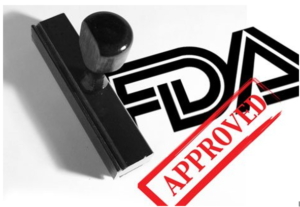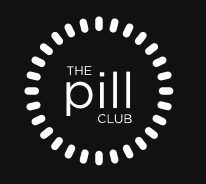- Pharmacy Week in Review: June 9, 2017 (pharmacytimes.com)
Nicole Crisano, PTNN. This weekly video program provides our readers with an in-depth review of the latest news, product approvals, FDA rulings and more.
- This Week in Managed Care: June 2, 2017 (ajmc.com)
Laura Joszt, assistant managing editor at The American Journal of Managed Care. Welcome to This Week in Managed Care from the Managed Markets News Network
- This Week in Managed Care: May 26, 2017 (ajmc.com)
Laura Joszt, assistant managing editor at The American Journal of Managed Care. Welcome to This Week in Managed Care from the Managed Markets News Network
- Drugs approved with limited data aren’t always well-tested later (reuters.com)
New medicines that win U.S. marketing approval without conclusive evidence of their effectiveness aren't always proven to work after they go on sale, a recent research review suggests...Researchers focused on medicines approved for sale based on single pivotal trials or based on what's known as "surrogate markers," such as lab tests and signs of risk for disease such as cholesterol levels instead of true clinical outcomes like heart attacks or deaths. Many times no follow-up studies were published after these medicines went on sale, and when studies were published they often continued to rely on surrogate markers to suggest potential effectiveness...speeding up the approval process increases our collective uncertainty about drugs' benefits and safety...This exposes patients to risks - the risk that they are spending their resources on therapies that do not work as well as expected as well as the possibility that they are taking drugs that have underlying safety risks that have not yet been figured out… researchers examined published studies of 117 medicines approved for treating 123 medical conditions by the U.S. Food and Drug Administration...based on either a single pivotal trial or on trials that relied on surrogate endpoints...no follow-up studies were published for 43 of the 123 approved indications, or 35 percent...
- This Week in Managed Care: June 9, 2017 (ajmc.com)
Laura Joszt, assistant managing editor at The American Journal of Managed Care. Welcome to This Week in Managed Care from the Managed Markets News Network
- Pharmacy Week in Review: June 2, 2017 (pharmacytimes.com)
Ned Milenkovich, PharmD, JD, PTNN. This weekly video program provides our readers with an in-depth review of the latest news, product approvals, FDA rulings and more.
- Pharmacy Week in Review: May 26, 2017 (pharmacytimes.com)
Nicole Crisano, PTNN. This weekly video program provides our readers with an in-depth review of the latest news, product approvals, FDA rulings and more.
- Pill Club Offers Pharmacy-Free Birth Control At Lower Costs, Plus Free Goodies (forbes.com)
Birth-control delivery services have understandably been on the rise, with each one trying to combine the best medical, financial and legal fit for patients in mobile form. A new app on the scene aims to streamline both process and cost for users by eliminating the pharmaceutical middleman and shipping wholesale medicine direct from its home base to patients' own...The Pill Club is on a mission to make getting birth control as easy and cost-effective as possible, and even fun...founder Nick Chang...these goals are made possible by a fundamental difference between his app and others on the market--namely, that it provides all prescriptions and products in-house, without needing to involve the pharmacies and pharmacy prices that many users are looking to avoid...serving as its own functional pharmacy is what will allow The Pill Club to make the difference for patients who want to acquire birth control but have faced all-too-common hurdles to getting it…I always saw that there were a number of hurdles facing women getting access to birth control. There are structural ones, such as needing to go to the doctor for a prescription, and visiting pharmacies again and again to fill that prescription...what we set out to do: to connect telemedicine with telepharmacy...
- Merck, UnitedHealth explore improving value-based contracts (biopharmadive.com)
As value-based contracts gain increasing traction in the healthcare system, Merck and UnitedHealth are teaming up to investigate exactly what makes those deals tick and how to improve them...the duo announced a multiyear project under which they will use patient information collected by the UnitedHealth's Optum...to create and test pay-for-performance models. The goal is to explore such models' "potential for broad adoption among health insurance companies, pharmacy benefit managers and pharmaceutical companies,"...The premise of outcome-based deals is that payers or PBMs offer rebates and discounts to drugmakers depending on how well a medication helps patients — more if the health benefit is high, less if it's low. In essence, these are compromises between the former parties, which want to pay as little as possible for a drug, and medicine developers, which want coverage and formulary inclusion for their products...
- Study: One-third of docs trust pharma content on HCP sites (mmm-online.com)
Only 34% of physicians find pharmaceutical content on HCP (healthcare professional)sites to be trustworthy, according to a new study by Decision Resources Group's Manhattan Research...We found that pharma is missing the mark when it comes to providing online content that physicians need in an easy-to-use way...DRG...surveyed 2,784 U.S. physicians in more than 26 specialties and found that only 27% of them viewed pharmaceutical websites as credible sources of professional information, compared to 77% of them who viewed third-party HCP-facing websites credible...62% of the physicians surveyed said that the information they get from drugmakers on third-party sites such as HCP sites and online journals “are always ads.”...What physicians need are resources for patient education, scientific information on drugs to help them make better treatment decisions, and continuing medical education, said Arnold. Seventy percent of physicians said it's crucial for drugmakers to provide educational resources rooted in science to gain their trust, yet half of them agree that no drugmakers are providing quality scientific online...










